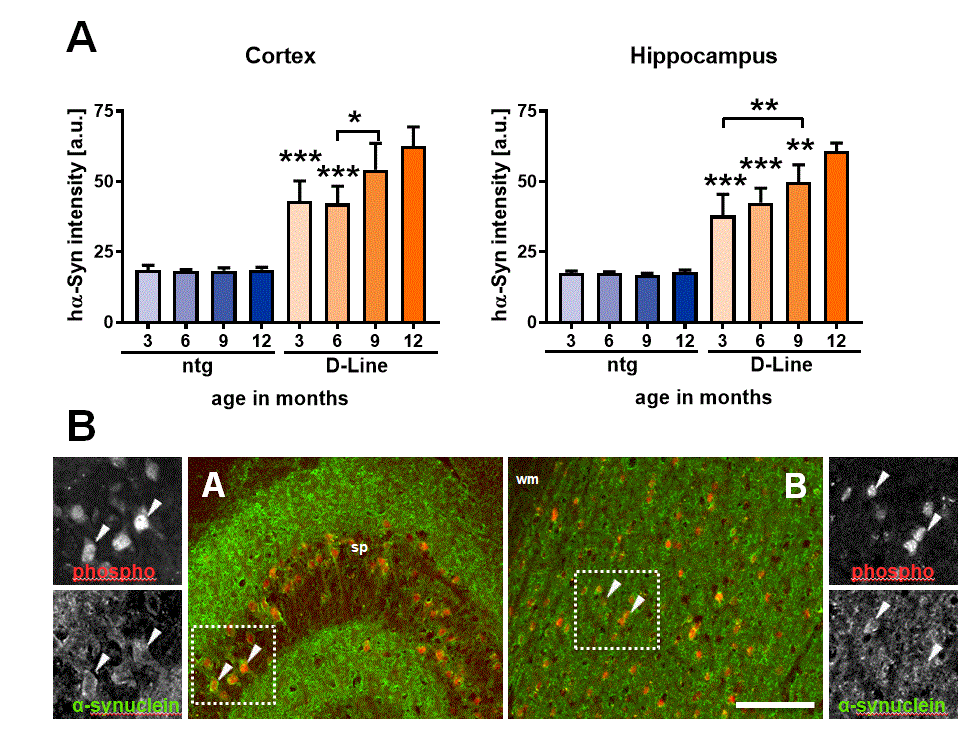D-Line mice overexpress wild type human α-synuclein under the regulatory control of the human platelet-derived growth factor–β (PDGF-β) promoter. The model was developed by Masliah et al. 2000, Science 287: 1265-9 and is bred on a C57BL/6 background. D-Line mice replicate features of human synucleinopathies such as accumulation of α-synuclein, increased phosphorylation of α-synuclein and high levels of ubiquitin in cortical and subcortical brain regions. The distinct histopathological features of the D-Line mouse allow testing the efficacy of pharmaceutical compounds that interfere with, or even reverse the progression of α-synuclein accumulation.
D-Line mice are cryo-preserved and will be recovered upon request.
The most important characteristics of D-Line mice are:
- Early increase of α-synuclein levels in distinct brain regions
- Increased pSer129 α-synuclein levels
- Ubiquitination in distinct brain regions

Figure: Quantitative immunofluorescence (A) reveals an increase in human α-synuclein expression with age in D-Line mice in both neocortex and hippocampus. n = 10-12; mean + SEM. Two-way ANOVA with Bonferroni’s post hoc test. *p<0.05; **p<0.01; ***p<0.001. B: Immunolabeling of phosphorylated human pSer129 α-synuclein (red) in the hippocampal CA3 (A) and somatosensory cortex (B) of D-Line mice at the age of 7 months. Phosphorylated human α-synuclein (red) is targeted to somata of principal neurons in the hippocampal stratum pyramidale (sp) where it accumulates in the nucleus (arrowheads) but is undetectable in neurites. Expression levels in the neocortex are shown in deep layers V and VI close to the white matter (wm). The green channel shows expression of transgenic human α-synuclein.
QPS Neuropharmacology offers a custom-tailored study design for D-Line mice, and we are flexible to accommodate your special interests. We are also happy to advise you and propose study designs. D-Line mice show a relevant Parkinson’s disease (PD) phenotype at the age of 3 months.
We are happy to evaluate the efficacy of your compound in the D-Line mouse model! The most common readouts are:
